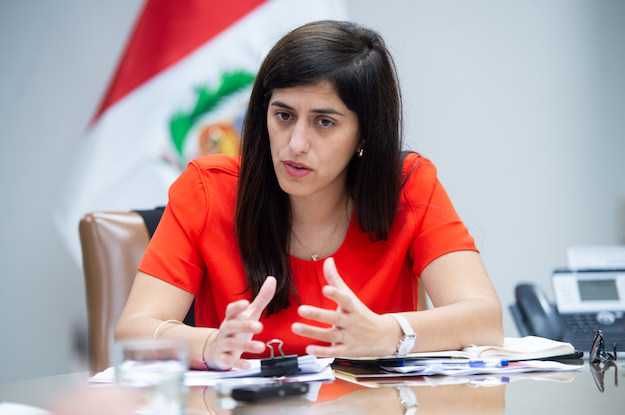In response to Federico Sturzenegger’s Oct. 31 article for AQ, a reader writes:
While the Oct. 27 election results in Argentina weren’t surprising —Alberto Fernández defeated incumbent Mauricio Macri, whose four years in office left a veritable economic and social scorched earth — former Central Bank president Federico Sturzenegger’s analysis of Macri’s tenure was rather surprising. For starters, his statements on freedom of the press and the independence of the justice system are not supported by actual events. Opposition media owners were persecuted and imprisoned under false pretenses, as recent reports have shown, and the United Nation’s Special Rapporteur on the Independence of Judges and Lawyers requested information regarding serious allegations about the executive’s meddling in the justice system.
Sturzenegger does get it partially right on two counts. First, “Macri’s presidency is a failure in economic terms.” Second, that failure cannot be blamed on the previous government or on bad luck, but entirely due to policies implemented by his government. However, the rest of Sturzenegger’s statements on the economy—the focus of my letter—are troubling.
The writer takes for granted that the mainstream economics view is the only point of view, and that inflation is a result of the fiscal deficit. But with Argentina’s economy functioning well below full capacity (currently below 60%), there is clearly room for more demand without it being inflationary. Why, then, did yearly inflation more than double?
We can start by looking at the floating exchange rate championed by Sturzenegger, a highly problematic policy in a country like Argentina where foreign exchange shortages are a recurring problem. Price formation in Argentina is closely linked to fluctuations in the exchange rate and when it increases, so do prices. Furthermore, the government linked key prices to the dollar, including electricity, gas, fuel and transport. The elimination of export taxes on primary products, a mechanism used to decouple domestic prices from world prices, also meant basic foodstuffs (wheat, maize, beef, dairy products) were now linked directly to world prices, leading to increases in lockstep with the exchange rate.
Add to that a broad deregulation of capital flows resulting in a lot more foreign exchange flowing out of the country than into it. Regulations were also changed to allow exporters to keep their revenue in foreign currency abroad instead of changing to pesos locally, further aggravating the dollar shortage and pressuring the exchange rate upward, with the expected impact on the price level.
Therefore, the Macri administration’s inability to control inflation was due to the combination of floating exchange rate policy, deregulation and the dollarization of key prices, not the fiscal deficit. This, of course, means that the policies implemented by the central bank to try to control inflation were not only not attacking the root problem but making it worse.
The second major problem, alluded-to only in passing by Sturzenegger, is the massive debt accumulation by the Macri administration. Sturzenegger states that the “government had financed itself with short-term dollar debt,” which was easily available until early 2018. That statement contains a substantial conceptual confusion: Government spending is in pesos and the government has no need to borrow in foreign currency for expenditures in the national currency.
This confusion led the Macri administration to double Argentina’s public debt, in fact financing record levels of capital flight, debt service and the trade deficit (that turned to a surplus in 2018 thanks to a substantial economic recession). The current debt levels and service schedule are a veritable financial time bomb for the next government that will be difficult to deactivate.
The conceptual and theoretical confusions of the Macri administration’s neoliberal economists highlight the importance of real-world economics as opposed to mainstream academic textbook models. Sturzenegger’s fascination with general equilibrium models and self-adjusting external balances through floating exchange rates may work in the mainstream textbooks, but not in a periphery country like Argentina.
–Alan B. Cibils, Universidad Nacional de General Sarmiento, November 12.








